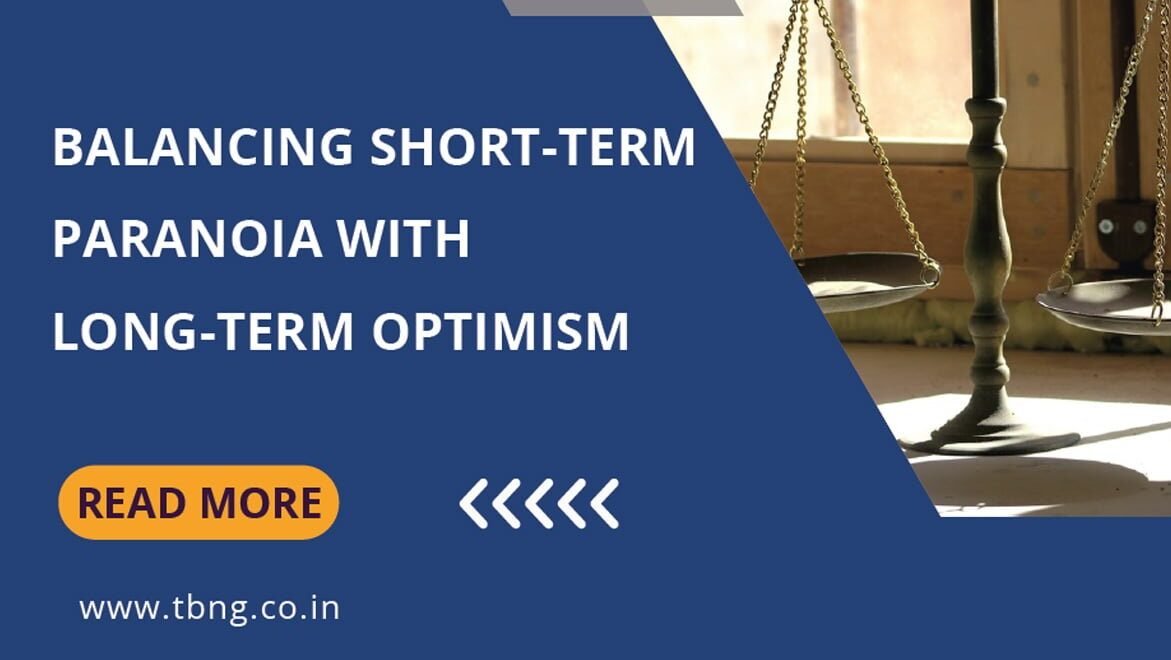“But you need short-term paranoia to keep you alive long enough to exploit long-term optimism.”
The quote suggests that having a short-term “paranoia” about money, or being cautious and mindful in managing one’s finances in the present, can help ensure financial stability and security in the long run. This allows individuals to be in a better position to take advantage of opportunities for growth and investment, which require a more optimistic and forward-looking perspective. In essence, the quote emphasizes the importance of balancing short-term caution with long-term optimism when managing one’s finances. Here are some ways that can be practised in personal finance:
Saving for emergencies: People with a short-term paranoid mindset about money might prioritize saving for emergencies, such as job loss or medical bills, before spending money on non-essential items. This helps to ensure that they have a financial cushion in the event of an unexpected crisis, allowing them to feel more secure and confident in their ability to handle challenges in the future.
Budgeting and financial planning: People who are mindful of their finances in the short term are likely to have a budget and financial plan in place, which helps them keep their spending in check and make the most of their income. By being mindful of their expenses and having a set plan, they are better positioned to take advantage of investment opportunities in the long term.
Delayed gratification: A short-term paranoid mindset can even lead to a willingness to delay gratification and save for more significant, long-term goals. For example, a person who is saving for a down payment on a house may choose to forego expensive vacations or luxury purchases in the short term in order to reach their long-term financial goals.
These are just a few examples of how a balanced approach to managing one’s finances, combining short-term paranoia with long-term optimism, can help lead to financial stability and success.
The idea of exploiting this mindset in order to capitalize on it in the long-term is particularly pertinent in the context of a potential financial market recession. During a recession, the economy and financial markets may experience significant volatility and uncertainty, making it essential for individuals to be mindful of their finances in the short term; this can include:
Diversifying investments: A person with a short-term paranoid mindset may choose to diversify their investments across multiple asset classes, such as stocks, bonds, and real estate, to reduce their risk exposure during a recession. This helps to ensure their portfolio is better protected against losses during a market downturn.
Paying off debt: It is also wise for individuals to pay off high-interest debt, such as credit card balances or personal loans, during a recession, as this can reduce their financial burden and increase their overall financial stability.
Staying invested: At the same time, it is also crucial for individuals to maintain a long-term optimistic perspective and not panic during a recession. This might include staying invested in the stock market, as historical data suggests that the stock market has always recovered from past recessions and downturns.
In conclusion, balancing short-term caution with long-term optimism is essential to successful financial management. Mindful financial practices, such as emergency savings, budgeting, and diversifying investments, help increase financial security and stability, enabling individuals to take advantage of investment opportunities and achieve their long-term financial goals. Additionally, maintaining a long-term optimistic outlook during a recession while paying off debt and staying invested can help protect finances and ensure long-term financial prosperity. Embrace the value of short-term caution and make informed financial decisions for a secure financial future.


Leave a Comment